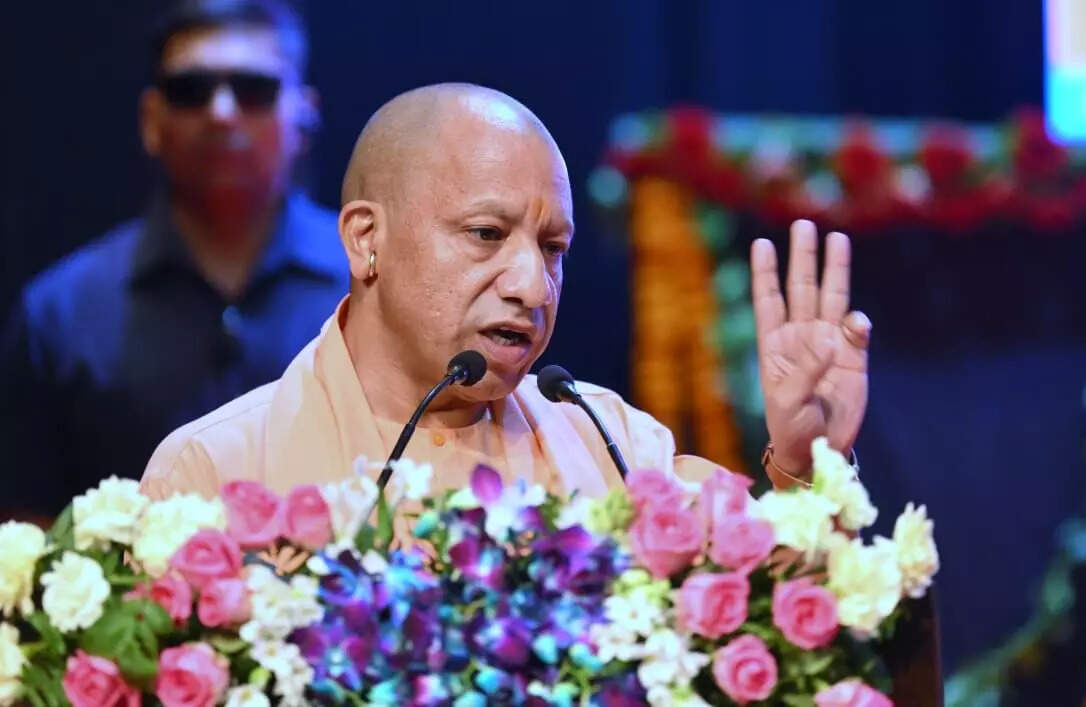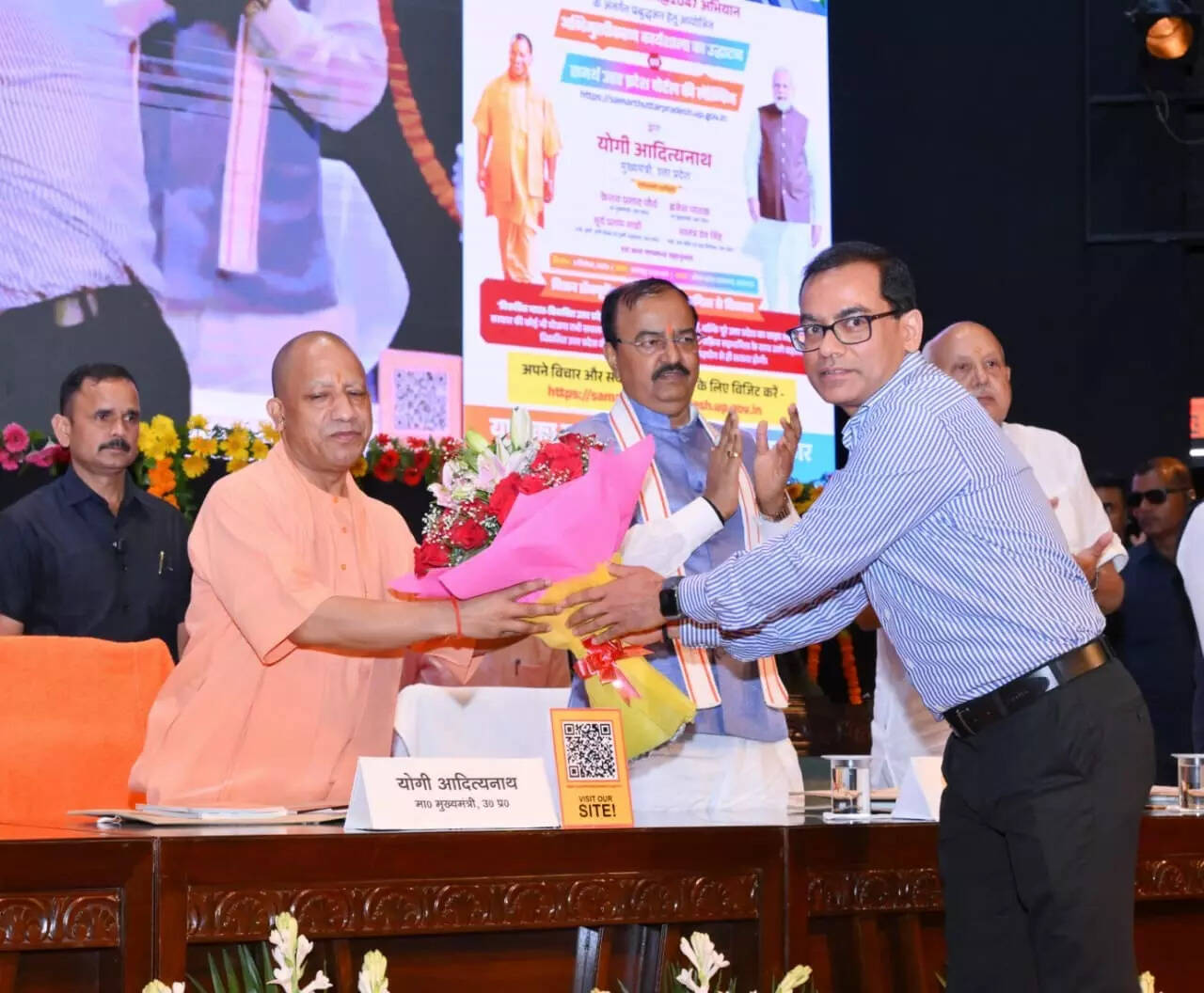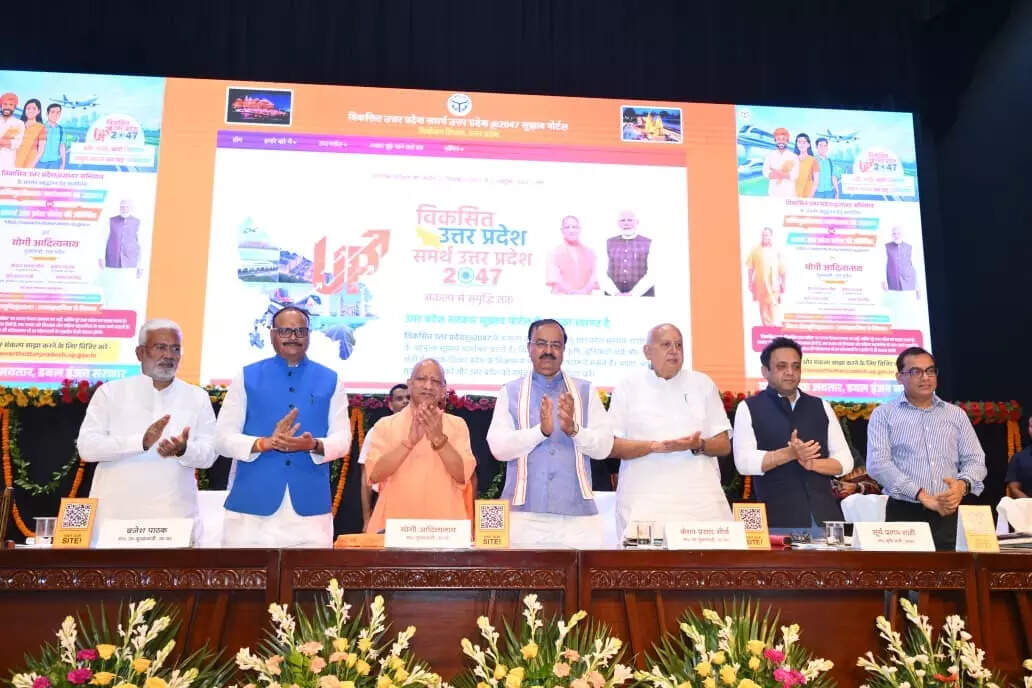
Uttar Pradesh Chief Minister Yogi Adityanath on Wednesday launched the ‘Samarth Uttar Pradesh – Viksit Uttar Pradesh @2047’ campaign at Lok Bhavan. He called on the people to actively participate in shaping the future of both the state and the nation and stressed that the aspirations of society must be reflected in a collective vision, with the youth prepared accordingly.
On this occasion, the CM launched the Samarth Uttar Pradesh portal, enabling citizens to share suggestions that will form part of the Vision Document 2047. The document will cover 12 key sectors, including agriculture, health, education, industry, IT, infrastructure, and is being shaped around the theme of ‘Economic Strength, Innovation, and Vitality’.
Over 400 retired officials and intellectuals from diverse fields such as administration, police, forestry, agriculture, education, and health, participated in the workshop, which began with a short film on UP’s development since 2017.
Aligning the initiative with Prime Minister Narendra Modi’s ‘Viksit Bharat @2047’ vision, CM Yogi said that every person of the state must be made a partner in development under the ‘Shatabdi Sankalp Abhiyan’. He urged senior citizens and intellectuals to contribute their experience, remarking, “Retirement does not mean fatigue; your wisdom will energize this campaign”.
Recalling India’s economic journey, the CM said, “In the 16th–17th centuries, India held 25 per cent of global GDP. By 1947, it had shrunk to 2 per cent. Under PM Modi, India has risen from 11th largest economy in 2014 to fourth today, and is poised to become third by 2027”.
He added that Uttar Pradesh too has transformed, from contributing 14 per cent of India’s GDP in 1947, it slipped to 8 per cent by 2016–17, but has since risen to become the country’s second-largest and fastest-growing state economy. UP’s GSDP has surged from ₹13 lakh crore to ₹35 lakh crore in eight years, alongside a rise in per capita income.
The CM said that UP is blessed with every resource needed for development — what remains essential is determination. Drawing inspiration from scientist Jagdish Chandra Bose, he remarked that positivity fosters growth, just as encouragement made Bose’s plant flourish.
He recalled UP’s transformation from a ‘Bimaru state’ to a growth engine, crediting initiatives such as the One District One Product scheme, which boosted MSMEs and exports to ₹2 lakh crore, and relief measures during COVID-19, which provided food and shelter to one crore people, including 40 lakh artisans.
Outlining the campaign’s roadmap, CM Yogi said the first phase will feature seminars in academic institutions, followed by active involvement of ministers, MPs, and MLAs. Resolutions will be passed in every gram panchayat and ward, with citizen suggestions collected through QR codes and categorised into short-, medium-, and long-term plans.
He noted that the UP Assembly has already held 36 hours of discussion on Sustainable Development Goals and 27 hours on Viksit Uttar Pradesh, with participation from all parties. Referring to Deputy CM Keshav Prasad Maurya, he said, “Viksit Bharat will emerge from developed families and villages”.
Citizens can now share their suggestions online

As part of the ‘Samarth Uttar Pradesh – Viksit Uttar Pradesh @ 2047’ campaign, launched with the vision of transforming the state into Viksit Uttar Pradesh by 2047, people will now have the opportunity to share their opinions and suggestions with the government directly.
To facilitate this month-long Maha Abhiyan, CM Yogi inaugurated a dedicated QR code and an online portal. Through these platforms, people are being invited to contribute their ideas for the state’s development actively.
The QR codes will be installed at public places, schools, and colleges, making the process of sharing suggestions simple and accessible. By scanning these codes, citizens can directly register their feedback on the official portal.
“Subject experts and NITI Aayog will evaluate useful and innovative suggestions, and the best ones will be rewarded at both district and state levels. The initiative aims not only to gather public feedback, but also to ensure its meaningful integration into policymaking for real development,” he added.
The programme witnessed the participation of over 400 intellectuals, who discussed the action plan of the campaign and emphasised the importance of citizen involvement. The Chief Minister underlined that this drive is more than just an administrative exercise — it is a collective movement to build a prosperous and Viksit Uttar Pradesh with active public participation.
Experts and scholars outline vision for Viksit Uttar Pradesh by 2047

CM Yogi inaugurated the “Samarth Uttar Pradesh – Viksit Uttar Pradesh @2047” campaign at Lok Bhavan on Wednesday, where experts from diverse fields presented their insights and deliberated on the state’s roadmap to development.
Speakers emphasised the need to prioritise education, health, agriculture, energy, research, culture, and social structure to make Uttar Pradesh a fully-developed state by 2047 and achieve the target of a six-trillion-dollar economy.
Vighnesh Kumar, Head, Department of History, Chaudhary Charan Singh University, Meerut highlighted the importance of linking the campaign with India’s freedom movement. He suggested integrating stories of the independence struggle to inspire society with energy, pride, and respect for heritage as the state advances toward its developmental goals.
Vijay Singh Niranjan, Retired IAS officer of 1990 batch, Madhya Pradesh Cadre recommended setting up food storage directly at farmers’ homes to benefit them.
Addressing concerns about coaching institutes, he suggested that they remain closed from 10 am to 2 pm to ensure children attend schools and colleges regularly, safeguarding the education system. He also emphasised the importance of integrating similar schemes across departments to enhance efficiency.
Retired IPS officer Ranjan Dwivedi recommended presenting the campaign region-wise and promoting it via social media to maximise public engagement.
Anand Kumar, another retired IAS officer, emphasised the need for revolutionary changes in education. He said that the tuition culture must be reduced, and skill development promoted in schools. At the same time, Indian values should be incorporated into education. He also pointed out the need to establish research hubs and research centres in Uttar Pradesh.
Retired railway officer Vijay Kumar Dutt proposed that the state’s 78,000 km of roads be mapped alongside railway lines to improve connectivity. He also suggested exploring ways to convert thermal power plants into nuclear power plants for sustainable energy.
Vipin Tripathi, a Sanskrit scholar, [full designation missing] stressed the importance of weaving Indian traditions into the development plan. He recommended linking the plan with the 12 months and 12 zodiac signs while giving greater prominence to Sanskrit studies.
Another retired railway officer, Shailendra Kapil, underlined the potential of Uttar Pradesh’s dairy and sweets industries. He suggested promoting dairy products nationwide and boosting the traditional sweets industry to expand its fame across India.
A K Jayanthi, former professor and head of the Department of Electronics and Instrumentation Engineering at SRM Institute of Science and Technology, called for the development of small townships on barren land to spur rural growth. He advised curbing urbanisation on fertile agricultural land, adopting the ‘andragogy’ model in higher education, and focusing on skill development to prepare youth for future challenges.
At the end of the programme, scholars unanimously said that the path of Uttar Pradesh’s development passes through education, health, research, culture, and social harmony. If attention is paid to these points, then the resolution of ‘Viksit Uttar Pradesh by 2047’ will certainly be fulfilled.
The programme was attended by Chief Minister Yogi Adityanath, Deputy CM Keshav Prasad Maurya and Brajesh Pathak, Cabinet Ministers Surya Pratap Shahi and Swatantradev Singh, Chief Secretary Deepak Kumar, Principal Secretary Home Sanjay Prasad, Principal Secretary Planning Alok Kumar, senior officials, vice-chancellors of various universities, retired officers, professors, and other dignitaries.
‘Viksit Uttar Pradesh’ vision anchored in economic growth, innovation, and dynamism
Speaking at the event, Alok Kumar, Principal Secretary, Department of Planning, Programme Implementation & Nodal Officer, One Trillion Dollar Economy, Government of Uttar Pradesh, explained through a presentation that the vision document is based on three core themes: Economic strength, innovation, and vitality.
The document focuses on 12 priority sectors such as agriculture, livestock conservation, etc. He also highlighted that while the Prime Minister has set a target of making India a $30 trillion economy by 2047, Uttar Pradesh aims to contribute by expanding its economy to $6 trillion by that year.
Following the orientation workshop, around 400 intellectuals will visit their assigned districts on September 8–9, 2025, staying for two days to interact with students, teachers, farmers, entrepreneurs, voluntary organizations, and citizens. They will share the state’s development journey of the past eight years, discuss its future roadmap, and gather people’s feedback to be incorporated into the Vision Document 2047.
The campaign will run from September 5 to October 5, 2025. It will be widely publicised through hoardings at district, tehsil, and block levels, advertisements in leading newspapers, as well as promotion on radio, television, and social media. Seminars will also be organized at the Gram Panchayat level to ensure grassroots participation.
To make the process more inclusive, the government has launched a dedicated feedback portal where citizens can share their opinions by scanning a QR code. The goal is to collect at least one feedback entry from every household in the state.
Selected suggestions will be incorporated into the regional development strategy. Special attention will be given to feedback from farmers, women, small and micro industries, and traders. Additionally, subject experts, NITI Aayog, and leading industrialists will also contribute their inputs.

